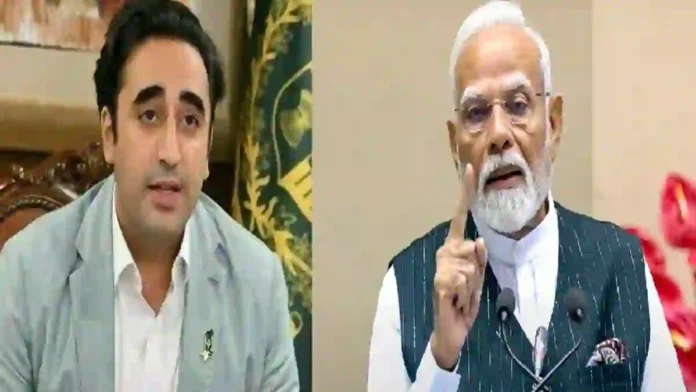Pakistan’s former Foreign Minister and Chairman of the Pakistan Peoples Party (PPP), Bilawal Bhutto-Zardari, made a forceful statement in the National Assembly on Monday, asserting that Pakistan would go to war with India if it is denied its fair share of water under the Indus Waters Treaty (IWT). This warning follows India’s decision to suspend the 1960 Indus Waters Treaty in the aftermath of the April 22 Pahalgam terrorist attack, which resulted in the deaths of 26 people. Indian Home Minister Amit Shah subsequently announced that India would never restore the historic accord.
Bilawal Bhutto-Zardari categorically rejected India’s suspension of the treaty, calling it illegal and in violation of both the IWT and the United Nations Charter. He emphasized that the IWT remains binding on both countries and cannot be held in abeyance unilaterally. In his speech, he declared, “India has two options: share water fairly, or we will deliver water to us from all six rivers,” referencing the six rivers of the Indus basin that are central to the treaty.
Read- India Orders 450 Nagastra-1R Units; Drones Are Reusable, With Precision Strike Capabilities
The former foreign minister characterised India’s move as a grave threat, arguing that any attempt to stop or divert Pakistan’s share of water would be considered an act of aggression. He warned that if India follows through with its threat, “we will have to wage a war again,” highlighting the existential importance of water for Pakistan and the region.
Bilawal’s remarks came two days after the Pakistan Foreign Ministry, led by Ishaq Dar, condemned Amit Shah’s statement as a “brazen disregard” for international agreements. The Pakistani side maintains that the IWT is not only a bilateral agreement but also an internationally recognized treaty, and any violation would have serious repercussions.
In addition to the threat of war, Bilawal Bhutto-Zardari underscored the need for dialogue and cooperation between India and Pakistan, especially in the context of counter-terrorism. He warned that a lack of communication and coordination on security matters would only intensify violence in both countries.
Read- Indian Army Boosts Firepower With Two Deep Strike PINAKA MBRL Rocket Regiments
Read- After Deadly U.S. B-2 Strikes on Iranian Nuclear Sites, Should India Invest in Strategic Bombers?
He also accused India of leveraging terrorism for political purposes and attempting to undermine Pakistan’s progress on the Financial Action Task Force (FATF) front by lobbying to move Pakistan back to the grey list through diplomatic pressure and “false narratives”.
Bilawal further asserted that Pakistan had succeeded in raising the Kashmir issue on the international stage and noted that former US President Donald Trump had expressed willingness to mediate on the dispute.
The current situation marks a significant escalation in India-Pakistan tensions, with the suspension of the IWT being accompanied by other punitive measures from India, such as cancelling visas for Pakistani citizens, closing the Wagah-Attari border crossing, shutting down the Pakistan High Commission in New Delhi, and reducing diplomatic staff at each other’s embassies. Both sides remain at a diplomatic impasse, with water security now at the forefront of their longstanding rivalry.
Bilawal Bhutto-Zardari’s statement reflects Pakistan’s deep concerns over water security and the sanctity of international treaties, while also highlighting the broader geopolitical and diplomatic fallout from the recent escalation between the two nuclear-armed neighbours.
Agencies




